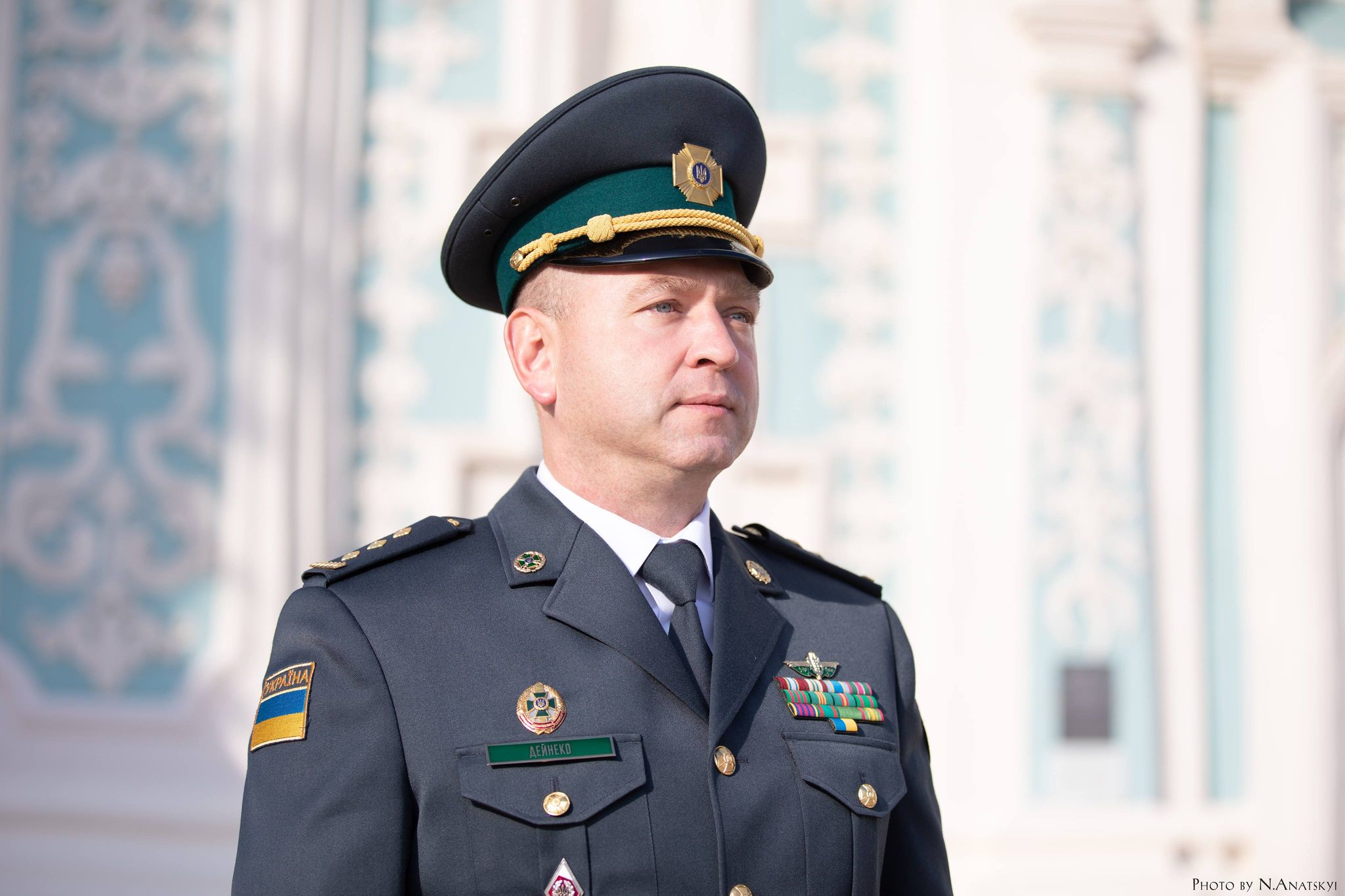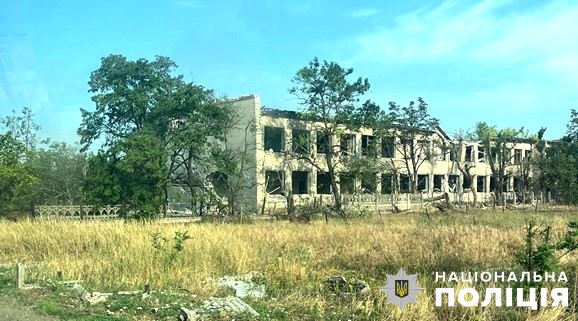Defense of the Luhansk Detachment — records of telephone conversations released

At 4 am on June 2, 2014, the first shots were fired in the direction of the Luhansk border patrol. Law enforcement agencies and state institutions of the city were already under the control of the militants.
170 border guards were besieged. Three hundred terrorists attacked the unit. They fired from courtyards, roofs and even apartments of high-rise buildings in the Mirny Quarter. Eight border guards were wounded. During the short-lived ceasefire, the seriously wounded were able to be taken out.
The border guards saved cartridges and tried to be as accurate as possible.
At some point, the parents of the border guards came to the gate of the detachment. Six demoralized contractors left their positions.
The defense lasted until the night of the next day.
Militants surrounded the unit on the night of 1 to 2 June 2014 and attacked with all types of small arms, including large calibers and grenade launchers.
Terrorists fired from rooftops and between houses, which were about 150 meters from the border fence. The border guards accepted an unequal fight, more than 100 heroes of the border guards held the defense. Their actions were very limited due to the fact that the militants fired from a residential neighborhood, occupied firing positions in the apartments of ordinary people and covered themselves with a “living shield” of civilians.
The border guards could only respond with small arms and subbarrel grenade launchers. The ferocity of the fighting is also evidenced by the presence of 9 wounded (4 of them in extremely serious condition) among the border guards.
According to border intelligence, in these battles militants suffered greater losses - about 20 killed and more than 40 wounded. Terrorists could not take the building.
The border guards kept the circular defense steady, turning on the anthem of Ukraine. The border guards left the perimeter on the night of June 3 to 4, 2014, without losses.
The unit's management was redeployed to units in Belovodsk and Bilolutsk. Today, the border patrol is located in the city. Starobilsk.
The Luhansk border detachment continues to guard the state border with the Russian Federation with a length of more than 500 km and performs tasks as part of the Joint Forces Operation. He is in constant combat readiness and ready to give a worthy rebuff to the enemy.
We bring to your attention a unique video of the first days of June 2014. Thanks to the recording of telephone conversations, you can not only see, but also hear what the border guards said to the accompaniment of enemy shelling.
About the details of those events, Radio Donbas.Realities asked the head of the State DPSU Sergey Deineko, who in 2014 was the head of the Luhansk border patrol.

Before shelling the border guards, separatists had been trying to capture military units in Luhansk for several weeks. Were there any ultimatums from the LPR group? Did you know there was going to be an attack?
— In Luhansk it all started with the seizure of the SBU building on April 7, 2014. A large number of automatic weapons and explosives were in the hands of the separatists. They surrounded Luhansk with their checkpoints, effectively took control of the highways. We have 5 border units out of 12 and the administration of the border detachment found themselves in the territory that was under the control of the “LPR” group.
June 2. 4 a.m. The fighting began. Who was in the squad then?
— Russian media reported that the “Right Sector” has settled in the border part, which holds and prevents border guards who want to cross over to the side of the so-called “LPR”. It was another “duck” from the Russian media.
At the time of the assault, there were about 170 soldiers from Luhansk region in the border detachment. There were several dog handlers, who with service dogs were with us on reinforcement from the Western Regional Branch, and an officer from Kharkov.
Were you ready for the offensive that day?
- In fact, we expected this attack since May 31, as we were “warned”. I gathered the entire staff in the assembly hall and explained that the assault would be mandatory. The only way out is to accept the fight, to inflict the greatest damage on those who will attack us. He ordered fire to the head and torso, so that the desire to repeat the attacks simply disappeared. He asked if there were those among the personnel who could not or did not want to fight. If there is, he proposed now to leave the border patrol, because otherwise there will be no such possibility. There were no such.
The fighting took place on June 2-4. What time was the “hottest”?
— The first day. The battle began at 4 in the morning and was effectively stopped after the 21st. For 17 hours, with short breaks, shelling continued continuously. The warehouse of fuel and lubricants was destroyed, all equipment. Therefore, when we received the order to leave the border patrol, in fact, we could only act on foot.
On June 3, there were isolated attempts to get closer, throw grenades at us. But we acted decisively, so the separatists constantly received “in return”. They left the detachment, following the order of Nikolai Litvin — then he was the head of the service. For which I am very grateful to him, because by his order he saved all my subordinates. The last border guard left the detachment at about half past four on the night of June 3-4.
Why was the decision to deploy?
- At about midnight, I was called by the head of the State Border Service, who asked about the situation. I reported that now, as I know, the separatists are storming the last military unit. This is a regiment of internal troops. They withdrew their forces there, and left a small number of observers next to us. The morale of the personnel is at the highest level, ready to continue armed resistance to the separatists. We have enough weapons, but the main thing is the thirst for victory. That chief gave the command to leave the detachment. Then we were in the office with all the officers, everyone heard this conversation and were surprised, because they were determined to fight to the last. However, the head of the State Border Service said that we will no longer have the morning, because no one will help us. And asked, am I ready to put all my subordinates in a mass grave?
Then I heard him. This responsibility for every fighter, for their families — it now rests with me. And if I say now that we are not going anywhere, then the separatists, after capturing a regiment of internal troops, will return.
When you left, you walked. How were you let go? How did they not shoot in the back?
They didn't see us. We had several options offered by the head of the border service. The first is to go to the border service station of Stanytsya Luhanska. At that time there was a reserve. But the distance to it is about 53 kilometers. In addition, the presence of a water barrier and two large checkpoints, where there were 20-30 separatists. In fact, they have reduced to zero our attempt to get out. After all, we understood: even if we destroy the first checkpoint, we will already be waiting for the second.
The second option is the Krasnodon Air Force site. The distance is the same. It did not make sense to enter the city, because, again, residential neighborhoods. And go to the site itself? It is a river, that is, the other shore is already Russia. There are no blinds, trenches. We stayed in a clean field.
The only option is to deploy the border patrol to Luhansk airport. There were Ukrainian paratroopers of the 80th Separate Brigade. We maintained contact with him during the assault. They had orders to guard a strategic facility. And now I understand: even if they came to our aid then, they would have destroyed them — they would have burned the equipment with grenade launchers. And they would die, and they would not help us.
The head gave the command to leave in small groups. 5-10 people each. In the future, gather together and remove the entire staff. Unfortunately, we only had one thermal imager mobile for 150 people. 32 people went to the airport, they could not physically remove any more.
The rest of the soldiers changed into civilian clothes, destroyed their personal documents so that if detained by the separatists they would not be identified as border guards. And they went home. And after 2-3 days, having received the order, they had to arrive at another unit. Everyone came out, no one was arrested that day.






